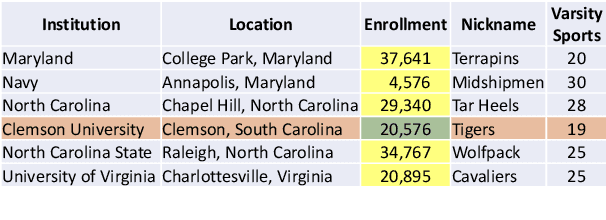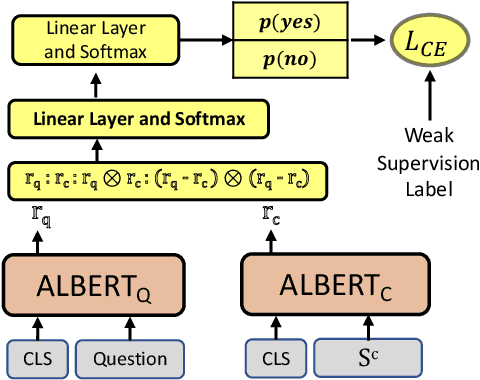Avi Sil
Capturing Row and Column Semantics in Transformer Based Question Answering over Tables
Apr 26, 2021



Abstract:Transformer based architectures are recently used for the task of answering questions over tables. In order to improve the accuracy on this task, specialized pre-training techniques have been developed and applied on millions of open-domain web tables. In this paper, we propose two novel approaches demonstrating that one can achieve superior performance on table QA task without even using any of these specialized pre-training techniques. The first model, called RCI interaction, leverages a transformer based architecture that independently classifies rows and columns to identify relevant cells. While this model yields extremely high accuracy at finding cell values on recent benchmarks, a second model we propose, called RCI representation, provides a significant efficiency advantage for online QA systems over tables by materializing embeddings for existing tables. Experiments on recent benchmarks prove that the proposed methods can effectively locate cell values on tables (up to ~98% Hit@1 accuracy on WikiSQL lookup questions). Also, the interaction model outperforms the state-of-the-art transformer based approaches, pre-trained on very large table corpora (TAPAS and TaBERT), achieving ~3.4% and ~18.86% additional precision improvement on the standard WikiSQL benchmark.
End-to-End QA on COVID-19: Domain Adaptation with Synthetic Training
Dec 02, 2020



Abstract:End-to-end question answering (QA) requires both information retrieval (IR) over a large document collection and machine reading comprehension (MRC) on the retrieved passages. Recent work has successfully trained neural IR systems using only supervised question answering (QA) examples from open-domain datasets. However, despite impressive performance on Wikipedia, neural IR lags behind traditional term matching approaches such as BM25 in more specific and specialized target domains such as COVID-19. Furthermore, given little or no labeled data, effective adaptation of QA systems can also be challenging in such target domains. In this work, we explore the application of synthetically generated QA examples to improve performance on closed-domain retrieval and MRC. We combine our neural IR and MRC systems and show significant improvements in end-to-end QA on the CORD-19 collection over a state-of-the-art open-domain QA baseline.
 Add to Chrome
Add to Chrome Add to Firefox
Add to Firefox Add to Edge
Add to Edge